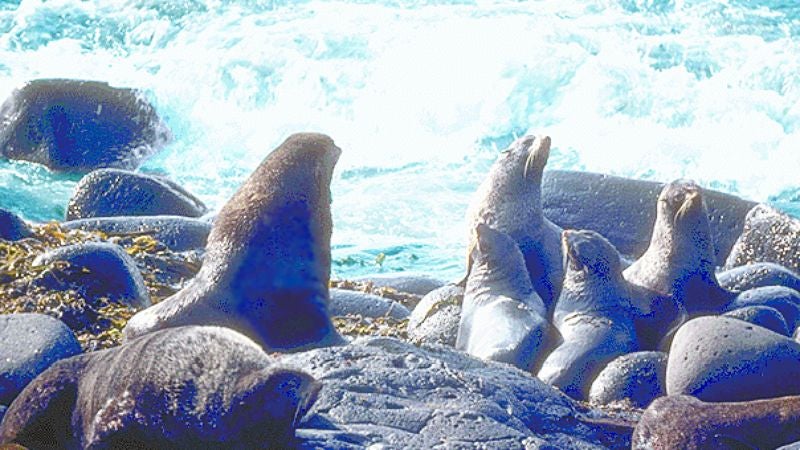NOME, AK—A Castrol Oil supertanker ran aground Monday near Nome, Alaska, spilling more than 51 million gallons of oil into the Bering Strait and greatly improving the viscosity of area marine wildlife. The spill, the world’s largest since the Exxon Valdez ran aground in 1989, has coated over 500,000 birds, fish and seals in quality, high-grade lubricant that will provide valuable protection and keep important animal parts running smooth.
Wildlife officials were excited by news of the spill.
“A thick coat of oil should help these animals a lot, especially in the cold weather,” Tom Wofford of the U.S. Fish and Wildlife Depart-ment said. “Last month alone, we had 200 cases of Northern Cranes suffering from severe thermal breakdown. When temperatures reach 75 degrees below zero, these seals need a good oil like Castrol to keep their wings and other parts loose.”
According to Wofford, the Bering Strait’s extremely active animal population, with its broad hunting and migratory patterns, has long been in need of preventative oil care.
“Today’s wildlife revs at higher r.p.m.’s,” Wofford said. “So when you’re a gray seal, and you’re swimming after a fish at over 200 strokes per minute, you can’t afford any friction on your fins or tail. You need a quality motor oil to keep them as loose as possible.”
Especially benefitting from the recent spill is the local salmon population. Several thousand were spotted energetically flipping around in the crude oil, gasping for air from all the playful exertion. Many of them, exhausted, stopped moving altogether.
Castrol spokesperson Bob Crutch-field was also pleased with the oil spill.
“For years our products have provided top-notch protection for millions of automobile owners,” Crutchfield said. “Now we will be able to provide that same protection for America’s birds and fish.”
For most Arctic-based animals, Crutchfield recommends Castrol Premium. For animals that spend a lot of time near or in the water, such as egrets and halibut, he recommends Castrol Plus, which contains an anti-rust ingredient.
Monday’s spill was so successful, plans are already being laid for similar oil leaks around the world. Beginning this spring, massive tankers strategically placed in wildlife-rich areas will be intentionally run aground, covering millions of surrounding flora and fauna in a healthy coat of motor oil. In shoreline areas not rocky enough to rupture metal, oil tankers will be “pre-cut,” their hulls sliced just enough to burst open at the slightest contact.
In addition to off-shore spills, Castrol officials hope to expand inland, coating rainforests, wetlands and other at-risk ecosystems in a high-grade automotive lubricant. “Every day, seven more species become extinct in the Amazon rainforest,” said Marcia Nettles, director of the Rainforest Action Network. “Perhaps if we stressed proper prevention and maintenance with genuine Castrol-brand products, we could keep these species from dying off so fast.”
According to Wofford, the recent oil spill has had an added benefit, providing the waters of the Bering Strait with an attractive rainbow sheen. “Before the spill, the water here was pretty much greenish-blue all the time,” Wofford said. “Now we’ve got a million different colors. It’s very exciting.”
Wofford added the water also now has “a super-fun shine, which is far more attractive than the algae and drab-green plant life it replaced.”







